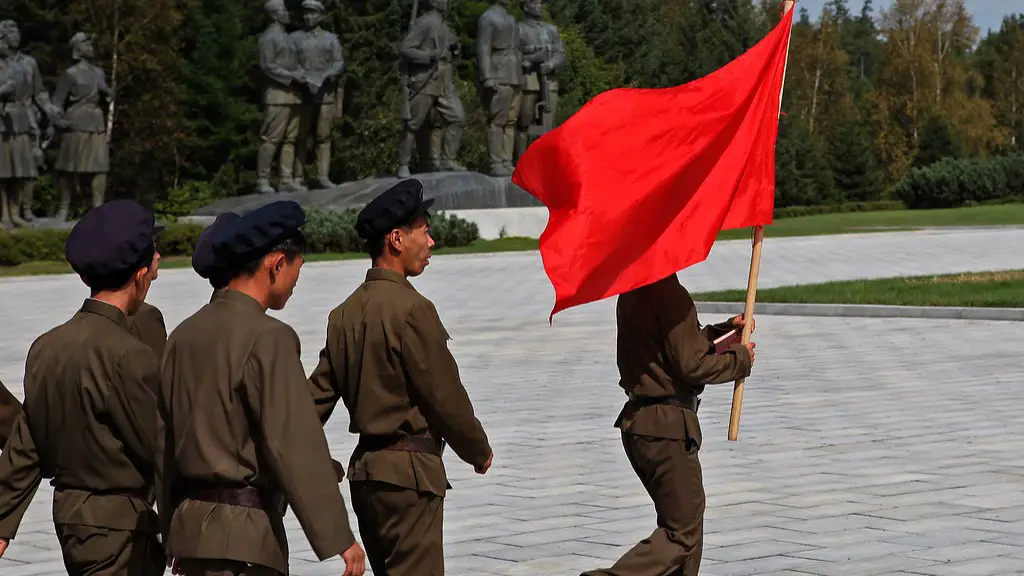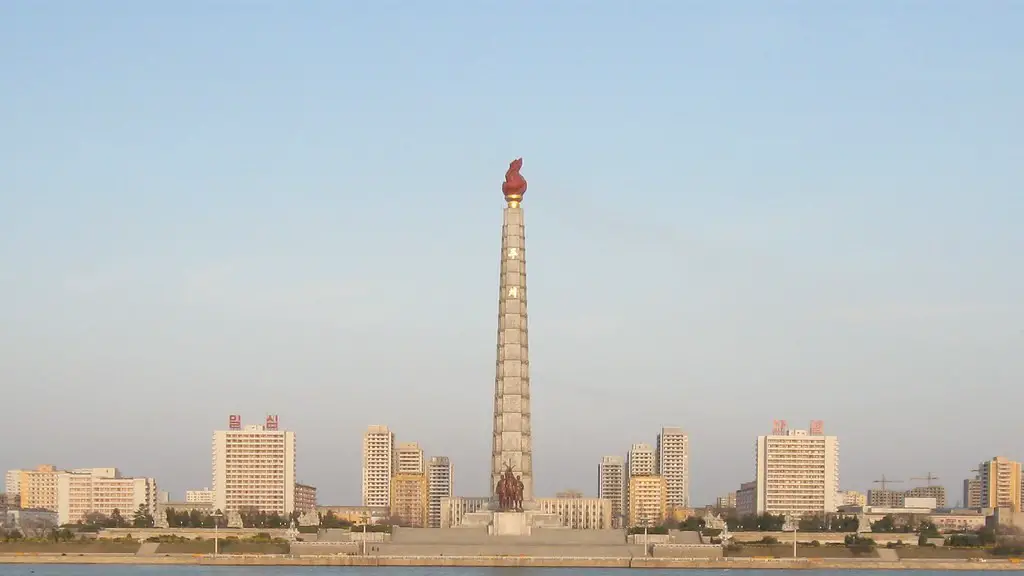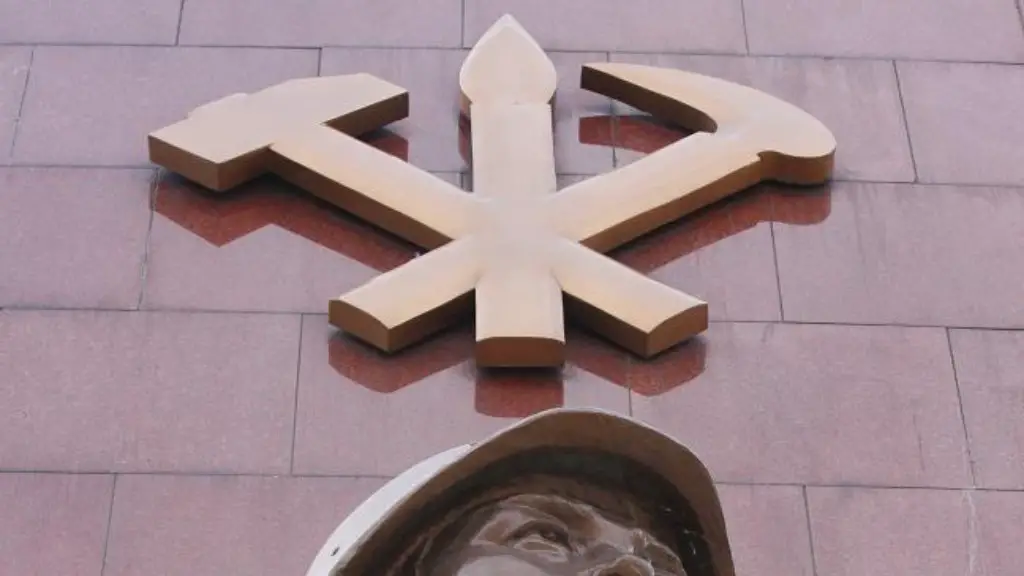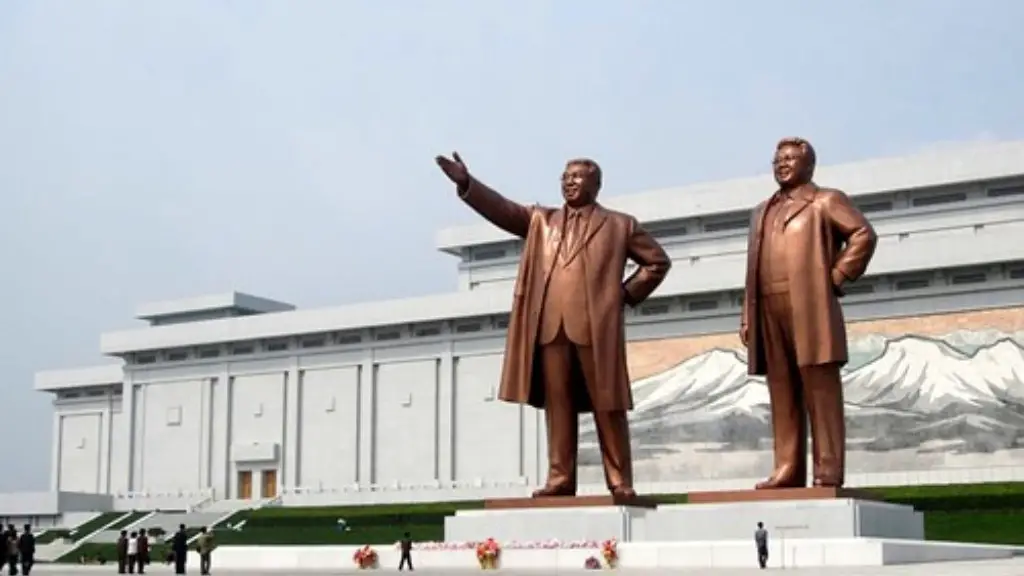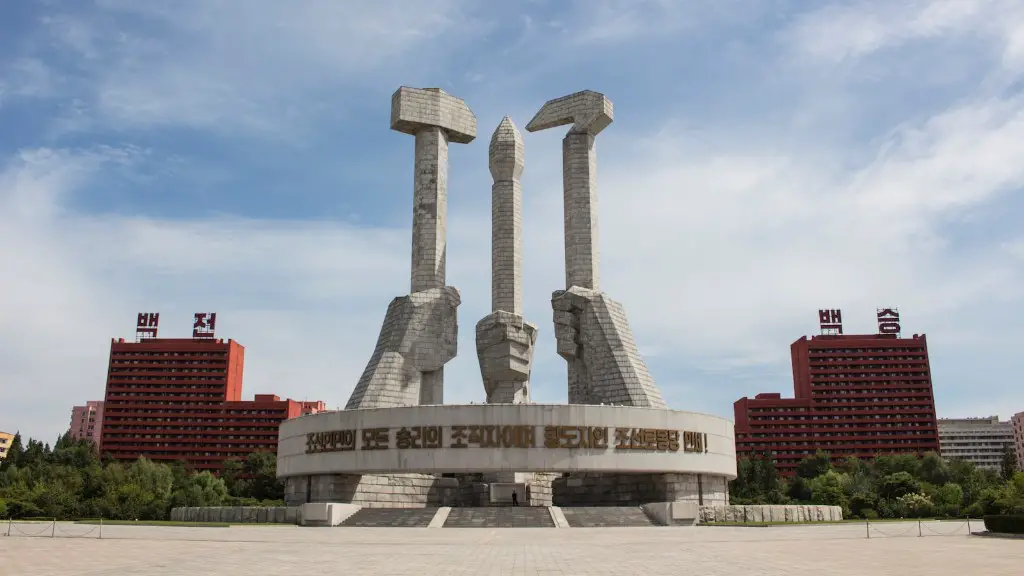Living in North Korea is like living in an isolated bubble, and with such extreme government surveillance, the Northern populace oftentimes don’t know who makes decisions on their behalf. A few key figures, however, control the politics of North Korea with an iron fist.
The supreme leader of North Korea is Kim Jong-un, son of the late Kim Jong-il, and grandson of the country’s founder Kim Il-sung. Kim Jong-un is the face and figurehead of North Korea, and he is responsible for making the majority of the major political decisions. Even though Kim Jong-un does not have absolute power, the indirect support and secrecy provided by the rest of the Central Committee allows him to reign supreme over the nation and its inhabitants.
The Central Committee is the puppet master of North Korea and is the highest party organ. Since Kim Il-sung’s death in 1994, it has served in an advisory role to Kim Jong-il and then Kim Jong-un. It is tasked with running the entire state and controlling the major decisions of North Korea. It consists of multiple members, including the General Secretary and the Chairman. The Central Committee is a group of senior government officials and military generals formed by the Workers’ Party of Korea.
The Cabinet of North Korea is the administrative body which is tasked with carrying out the decisions taken from the Central Committee. The Cabinet is divided into different ministries, each of them responsible for the management of the corresponding economic activity, such as the Ministry of Foreign Affairs and the Ministry of Finance. It is headed by the Prime Minister, a post which is appointed and held by loyalists to Kim Jong-un. The Prime Minister is the head of government and is thus responsible for implementing the decisions of the Central Committee.
The National Defense Commission is the highest military body in North Korea, and it is formed of members handpicked by Kim Jong-un. It is tasked with maintaining North Korean security and providing strategic guidance on its nuclear program. Kim Jong-un holds the position of head of the National Defense Commission, and thus he is the one tasked with making the final decision when it comes to military and security matters.
The Politburo is the highest party organ and is tasked to make decisions with regards to ‘political and ideological directions’. It is composed of members of the rank and file of the Workers’ Party of Korea, and it is headed by the Chairman, who is usually the same person as the General Secretary. The Politburo is responsible for the formation, modification and implementation of state policies in all fields of politics, economy and social affairs, and it serves as the junction block between the government and the people.
The People’s Assembly is tasked with making decisions regarding the finances and economic policies of North Korea. It is composed of representatives from the different regions of the state, and it is led by the Chairman of the Standing Committee, who is appointed by the Politburo. The People’s Assembly is responsible for expressing the will of the citizens with regards to economic issues, and it is the one which approves or repeal the budgets proposed by the Cabinet.
Welfare Reforms in North Korea
In recent times, North Korean authorities have taken steps towards introducing welfare reforms in order to reduce their excessive spending. Such reforms entail more effective use of resources and the implementation of stringent austerity measures. The recent State Budget promulgated in July 2020 includes an increased focus on investment in infrastructure, restructuring of the public sector, increased benefits for impoverished citizens and the development of new sources of revenue.
An example of the welfare reform proposed by the State Budget is the allocation of a larger part of the budget towards providing for the elderly and disabled citizens. The budget proposes to increase pensions for the elderly and to grant financial support for disabled individuals and their carers. Several measures such as providing for subsidized housing and health care to the elderly and disabled are also included in the proposed budget.
In addition to the proposed budget reforms related to social welfare, the North Korean government has also proposed to consolidate existing funds to ensure better coordination and efficiency of the welfare system. The State Budget also includes a variety of measures to promote and incentivize private investment in North Korea’s fledgling economy. This includes the introduction of tax breaks and incentives as well as the expansion of access to government services and infrastructure.
Human Rights Concerns in North Korea
North Korea is notorious for its dismal human rights record. Its oppressive government exerts unprecedented control over its populace, and uses a variety of tactics to maintain its power. Such violations include shoot-to-kill sentences and arbitrary detention, as well as a pervasive cult of personality concerning Kim Jong-un. According to Amnesty International, torture is insidious and widespread in the country, perpetrated by its security services and other arms of the government.
The United Nations Commission of Inquiry on Human Rights in the Democratic People’s Republic of Korea (also known as the COI Report) details the dire human rights situation in the country. The COI Report indicates that North Korea systematically confines tens of thousands of people in political prison camps, many of them for their mere association with their families or for speaking out against the government. Furthermore, the COI Report states that sexual violence, inhumane living conditions and a culture of fear are pervasive in the country.
The one-party state of North Korea is frequently condemned by the international community. Since 1991, the United Nations has passed several resolutions on North Korea, which call on the state to end its grave human rights violations. In 2016, the United Nations adopted the ‘North Korean Human Rights Resolution’, which similarly called on North Korea to dive up its system of labor camps and promote human rights.
However, to date, it is clear that the North Korean government is not in compliance with its legal obligations under international law. The Government continues to violate the rights of its citizens with impunity, and the international community has failed to take meaningful action to address the violations.
International Criticism of North Korea
Since its inception, North Korea has been criticized by the international community for its oppressive policies. In particular, North Korea has come under considerable criticism for its nuclear activities. North Korea’s nuclear arsenal is estimated to include more than 20 nuclear warheads and multiple medium-range delivery vehicles. In response to its nuclear program, the United Nations has imposed multiple sanctions against the country.
The international community has also criticized the North Korean government for its actions against its dissidents. In order to maintain its severe domestic control, the North Korean Government has been known to imprison, torture and even execute those who resist the regime. Such actions have been widely condemned by the international community.
In spite of the international pressure, North Korea continues to remain adamant about retaining its political regime. In recent years, North Korea’s relations with countries such as the United States and South Korea have advanced, but it remains to be seen whether the country will become an open society where human rights and civil liberties are respected.
Economic Challenges in North Korea
In addition to its human rights violations, North Korea also faces significant economic challenges. For the past few decades, the North Korean state has experienced a prolonged period of stagnation, caused largely by its stringent regime of international sanctions. Moreover, the state’s reliance on military spending has further exacerbated its economic situation.
Furthermore,North Korea is also facing a severe famine. According to the United Nations, North Korea suffers from chronic food insecurity, with nearly 40% of its population malnourished. Such economic challenges have caused much hardship for the North Korean people, and despite attempts to institute reforms, the government’s policies has yet to result in tangible improvements.
In the face of such economic adversity, many North Koreans have turned to illegal activities in order to survive. The most widespread form of criminal activity is the trafficking of opium and methamphetamine. These illegal activities are conducted by organized criminal gangs, some of which are sponsored by the North Korean authorities.
In spite of the international pressure, North Korea’s economy remains largely stagnant and its people continue to suffer from its government’s oppressive policies. It remains to be seen whether the North Korean government will introduce meaningful reform in order to improve the plight of its citizens.
Perspectives of North Korean Supporters
Despite the well-documented human rights abuses and economic challenges that North Koreans face, there are still many who support the regime. These North Korean nationalists express a strong sense of patriotism and loyalty to the Kim dynasty. Such supporters emphasise the need for preserving North Korea’s self-reliance, and have been vocal in their criticism of the United States and other western powers for what they perceive as unjustified interference in their domestic affairs.
North Korea has also been adept at garnering support from its allies, such as China and Russia, both of which provide economic assistance to the regime. China and Russia are also both signatories to the United Nations’ ‘North Korean Human Rights Resolution’, but have been widely seen as obstructing the international body’s efforts to curb human rights violations in the country.
The regime is also fond of rebranding itself as a legitimate state and has sought to appeal to North Korean youth by promoting socialist ideals such as ‘scientific socialism’ and ‘independent economy’. Such initiatives have been met with mixed success, as many North Koreans remain hesitant to wholly embrace the government’s ideals.
North Korea has also sought to increase its cultural standing by engaging in sporting events such as the 2018 Winter Olympics. The country has also cultivated a close relationship with South Korea, leading to the signing of the North-South Joint Declaration and the adoption of an inter-Korean Railway Modernization project.
North Korean Diplomacy with the US
Over the years, North Korea’s relations with the United States have been tense, and the two countries remain in disagreement over the issue of nuclear disarmament. In 2018, North Korea and the United States engaged in a historic summit in Singapore, in which North Korean leader Kim Jong-un met with US President Donald Trump to discuss potential solutions to security issues.
Despite the summit’s promising prospects, the negotiations between North Korea and the United States have since stalled. In the aftermath of the summit, the North Korean government has refrained from engaging in further dialogue with the United States, citing a lack of desired steps taken by the Trump administration.
North Korea’s foreign minister also cited heightened hostile rhetoric from the United States as a factor in the collapse of negotiations, as he believes that such rhetoric blocks any possibility of diplomatic progress. Such hostile language has been used by the Trump administration in order to pressure North Korea into accepting a more compliant stance.
The impasse between North Korea and the United States presents a tremendous challenge for the incoming Biden administration. If Biden wishes to revive the North Korean denuclearization endeavour, he will have to come to terms with a North Korean government that is unwilling to return to the negotiating table. The stakes could not be higher, as an increasing number of military skirmishes on the Korean peninsula could have dire implications for the security of the region.
